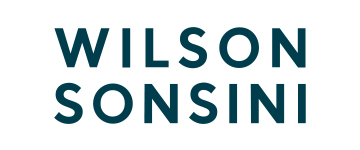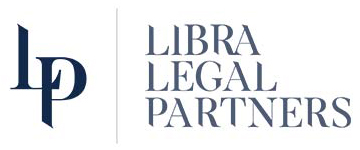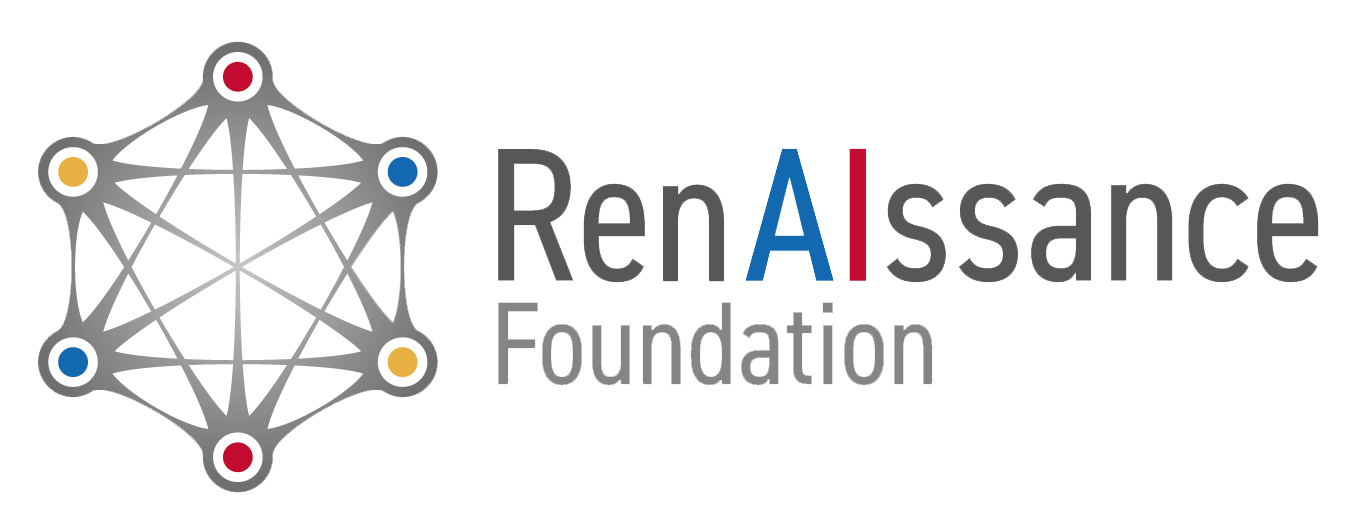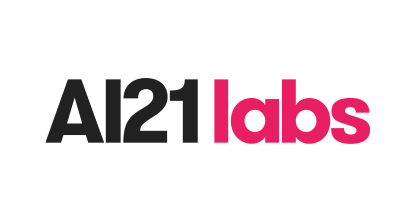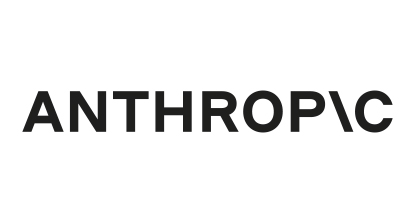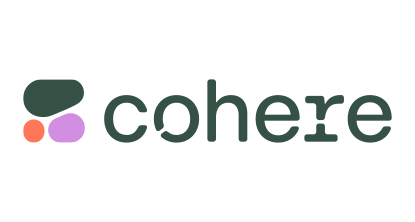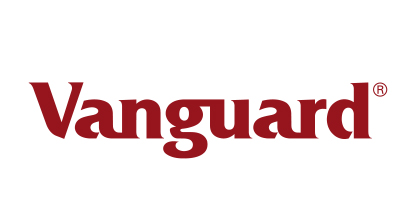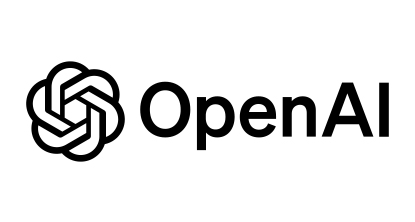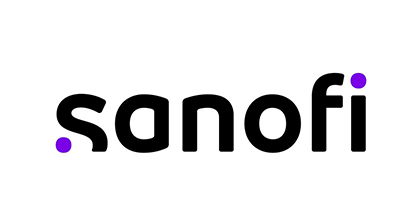Comprehensive Reading List
2025 Conference Papers
Quick Navigation by Conference Focus Areas
Based on the three core conference themes:
Corporate Governance & Board Oversight
Models and effective oversight by boards of AI companies and enterprises
- Essential: Items 1, 15, 16, 17, 20
- Advanced: Items 7, 8, 9, 10, 18, 29
- Implementation: Items 19, 20, 37, 38, 39, 40, 50
Ethical Challenges in AI Development & Deployment
Challenges faced by companies developing and deploying AI
- Foundation: Items 2, 25, 26, 27
- Industry Practice: Items 34, 35, 36, 37, 41, 42, 43
- Academic Framework: Items 11, 12, 13, 14, 28, 41, 42, 43, 48
Corporate Structures & Stakeholder Alignment
Designing structures to ensure AI serves all stakeholders with long-term focus
- Economic Impact: Items 3, 4, 5, 20, 21, 22, 23, 24
- ESG Integration: Items 38, 39, 40
- Policy Framework: Items 28, 29, 30, 31, 32, 33, 51
- Risk Management: Items 6, 28, 43
Academic Theory & Policy Research
Research foundations and expert analysis
- Policy Research: Items 44, 45, 46, 47
- Expert Analysis: Items 48, 49, 50
If you are short on time: Essential Quick Reads
These provide a good cross-section of the complete list and foundational understanding:
- AI Principles – OECD (originally adopted May 2019; updated May 2024): Essential foundational framework that establishes international consensus on responsible AI development and deployment. ~15 minutes
- Pope Francis Speech on AI at G7 Summit – Vatican (June 14, 2024): Provides the ethical perspective from a major global institution that will frame discussions at the Vatican venue. ~8 minutes
- OpenAI CEO Sam Altman says AI is ready for entry-level jobs – Fortune (June 5, 2025): Current industry perspective on AI’s immediate workplace impact and generational responses. ~6 minutes
- ChatGPT is About to Revolutionize the Economy. We Need to Decide What That Looks Like – MIT Technology Review (March 25, 2023): Comprehensive overview of AI’s economic transformation potential with specific policy recommendations. ~12 minutes
- The Anthropic Economic Index – Anthropic (February 10, 2025): Data-driven analysis of AI’s economic impact with empirical evidence and sector-specific insights. ~10 minutes
- The Godfather of A.I. Leaves Google and Warns of Danger Ahead – New York Times (May 1, 2023): Key industry warnings from leading AI researcher Geoffrey Hinton about development risks and the need for governance frameworks. ~8 minutes
Academic & Research Foundations
- Using Experience Smartly to Ensure a Better Future: How the Hard-Earned Lessons of History Should Shape the External and Internal Governance of Corporate Use of Artificial Intelligence – Leo E. Strine, Jr. (June 7, 2024): Applies historical governance lessons to contemporary AI challenges, providing legal and corporate governance perspective with specific recommendations for board oversight. ~60 minutes [Advanced]
- Between Promise and Power: Artificial Intelligence, Shareholder Activism, and the Corporate Governance of the Next Generation – Matera, Boston University Journal of Science & Technology Law (May 15, 2025): Examines intersection of AI development, shareholder rights, and corporate governance structures with case study analysis. ~60 minutes [Intermediate]
- AI Regulation Has Its Own Alignment Problem: The Technical and Institutional Feasibility of Disclosure, Registration, Licensing, and Auditing – Arthur and Toni Rembe Rock Center for Corporate Governance (December 22, 2024): Analyzes practical challenges of implementing AI regulatory frameworks with empirical evidence from early adoption attempts. ~180 minutes [Advanced]
- Anthropic Long-Term Benefit Trust – Morley (Yale Law), Berger (Wilson Sonsini), Simmerman (Wilson Sonsini), Harvard Law School Forum on Corporate Governance (October 28, 2023): Explores innovative corporate structures for AI companies focused on long-term benefit rather than short-term profit maximization. ~20 minutes [Intermediate]
- A Multilevel Framework for AI Governance – Choung (Michigan State), David (Michigan State), & Seberger (Drexel) (2023): Provides comprehensive academic framework for understanding AI governance across organizational levels with practical implementation guidance. ~30 minutes [Advanced]
- Operationalising AI Governance Through Ethics-Based Auditing: An Industry Case Study – Mokander (Oxford) and Floridi (Oxford and University of Bologna) (May 20, 2022): Demonstrates practical implementation of AI ethics through real-world auditing processes with detailed methodology and lessons learned. ~70 minutes [Intermediate]
- How Bioethics Can Inform Ethical AI Governance – Harvard Edmond & Lily Safra Center for Ethics (March 15, 2025): Novel framework applying established bioethics principles to AI governance challenges, offering practical operating models adapted from successful ethics integration in healthcare. Provides actionable governance structures for complex ethical decision-making. ~15 minutes [Applied Framework]
- The 2025 AI Index Report – Stanford HAI (May 9, 2025): Most comprehensive annual data-driven analysis of AI’s technical progress, economic influence, and policy developments globally. Provides empirical foundation for governance discussions with quantitative metrics on AI advancement, regulatory activity (59 AI regulations in 2024), and international cooperation trends. ~30 minutes for headlines, 75 min video [Data Foundation]
Corporate Governance & Board Oversight
- Strategic Governance of AI: A Roadmap for the Future – Deloitte (April 24, 2025): Provides boards with comprehensive roadmap for AI oversight, applying proven governance frameworks specifically to AI challenges with practical guidance questions and implementation timelines. ~15 minutes [Executive Focus]
- AI in Focus in 2025: Boards and Shareholders Set Their Sights on AI – Harvard Law School (April 2, 2025): Reveals shareholder proposals related to AI more than quadrupled, with 84% increase in board oversight disclosure year-over-year, demonstrating urgent need for proactive board engagement. ~20 minutes [Executive Focus]
- Governance of AI: A Critical Imperative for Today’s Boards – Deloitte Global Survey (May 27, 2025): Reveals that 31% of companies don’t have AI on board agenda and 66% of boards lack sufficient AI knowledge, highlighting critical governance gaps with specific remediation strategies. ~20 minutes [Executive Focus]
- The State of AI: How Organizations Are Rewiring to Capture Value – McKinsey (March 12, 2025): Latest comprehensive survey of 1,491 participants revealing that while 72% of organizations now use AI, most struggle with governance—only 18% have enterprise-wide councils with authority for responsible AI governance, highlighting critical board oversight gaps. ~20 minutes [Executive Focus]
- Ethical Machines: Your Concise Guide to Totally Unbiased, Transparent, and Respectful AI – Reid Blackman (July 12, 2022): Comprehensive guide to implementing AI ethics in corporate settings with practical frameworks, implementation checklists, and real-world case studies. ~3-4 hours (book) [Comprehensive Reference]
- Building an AI future we can trust: Looking back on 5 years of IBM’s AI Ethics Board – IBM (2024): Comprehensive retrospective on one of the longest-running corporate AI ethics boards, providing practical lessons learned from five years of implementation including governance evolution, decision-making processes, and real-world case studies of ethical AI deployment. Essential for understanding mature corporate AI ethics governance. ~20 minutes [Corporate Implementation]
Economic Impact & Future of Work
- From Potential to Profit: Closing the AI Impact Gap – BCG (January 15, 2025): Survey of 1,800+ C-suite executives reveals significant gap between AI aspirations and outcomes, with leading companies focusing on transformational rather than incremental change strategies. ~20 minutes [Executive Focus]
- AI in the Workplace: A Report for 2025 – McKinsey (January 28, 2025): Explores AI’s transformative potential beyond automation, introducing “superagency” concept where humans and machines collaborate to amplify creativity and productivity with sector-specific analysis. ~25 minutes [Strategic]
- AI at Work is Here – Now Comes the Hard Part – Microsoft Work Trend Index (May 8, 2024): Data-driven insights on how AI is currently being integrated into workplace practices with quantitative metrics and adoption patterns across industries. ~18 minutes headlines, 60 minutes full report [Data-Focused]
- Behind the Curtain: A white-collar bloodbath – Axios (May 28, 2025): Examines AI’s impact on professional employment with specific examples, unemployment data, and sector-by-sector analysis of job displacement patterns. ~10 minutes [Current Events]
- I’m a LinkedIn Executive. I See the Bottom Rung of the Career Ladder Breaking – New York Times (May 19, 2025): First-hand perspective from recruiting industry leader on how AI is affecting entry-level job market with specific data from LinkedIn’s platform. ~7 minutes [Industry Insider]
Recent Vatican and Religious Perspectives
- Antiqua et Nova: Note on the Relationship Between Artificial Intelligence and Human Intelligence – Vatican Dicasteries for the Doctrine of the Faith and for Culture (January 28, 2025): Most recent comprehensive Vatican document on AI, providing detailed ethical guidelines across sectors from warfare to healthcare, essential foundational reading for Vatican venue context. ~120 minutes [Vatican Essential]
- Pope Leo XIV Takes Stand on AI Ethics: The Vatican Algorithm War Has Officially Begun – Analysis (May 13, 2025): Analyzes new Pope’s strategic positioning connecting to industrial revolution papal responses, positioning Church as alternative moral authority in global AI governance debates. ~12 minutes [Vatican Context]
- Pope asks world’s religions to push for ethical AI development – USCCB (July 10, 2024): Documents multi-faith approach to AI ethics through Rome Call for AI Ethics, demonstrating religious leadership in technology governance and interfaith cooperation models. ~5 minutes [Multi-Faith Perspective]
Regulatory & Policy Frameworks
- Solving AI ethics? Hybrid expertise and professional power in EU ethics governance – Academic Research (May 12, 2025): Analyzes how EU’s sectoral ethics governance creates policy dilemmas, revealing that stakeholder conflicts are foundational to ethical framework negotiation with implications for corporate compliance strategies. ~60 minutes [EU Focus]
- Leveraging COBIT for Effective AI System Governance – ISACA (January 31, 2025): Addresses critical gap of clear AI governance ownership within organizations, providing actionable framework that aligns AI initiatives with strategic goals using established IT governance principles. ~30 minutes [Implementation Guide]
- Governing AI for the Future of Humanity – Stimson Center (April 2025): Analyzes how global initiatives from 2024 UN Summit of the Future can promote AI governance that protects long-term human and planetary well-being with specific policy recommendations. ~20 minutes [Global Governance]
- Pause Giant AI Experiments: An Open Letter – Future of Life Institute (March 22, 2023): Historical document signed by over 30,000 experts that shaped AI safety discourse and influenced regulatory discussions globally, essential for understanding current policy debates. ~25 minutes [Historical Context]
- Governing AI for Humanity: Final Report – United Nations AI Advisory Body (September 2024): Official UN perspective on global AI governance framework and international cooperation mechanisms with specific recommendations for multilateral action. ~45 minutes [UN Framework]
- A Pro-Innovation Approach to AI Regulation – UK Department for Science, Innovation & Technology (March 29, 2023): Alternative regulatory model emphasizing innovation while maintaining safety standards, demonstrating sector-specific governance approaches. Published under previous UK Government ~60 minutes [UK Model]
Industry Perspectives & Implementation
- Open Source AI is the Path Forward – Meta (July 23, 2024): Strategic vision for open-source AI development and its implications for industry governance, addressing intellectual property, safety, and competitive dynamics. ~8 minutes [Tech Industry]
- AI Action Summit – Google (February 10, 2025): CEO Sundar Pichai’s perspective on balancing AI innovation with responsible development practices, outlining Google’s governance approach and industry leadership strategies. ~16 minutes [Tech Leadership]
- Responsible AI: Our 2024 report and ongoing work – Google (February 4, 2025): Most recent comprehensive corporate AI responsibility report detailing governance structures, safety frameworks, and risk management approaches. Includes updated Frontier Safety Framework and demonstrates large-scale AI governance implementation across product development lifecycle. ~8 minutes [Corporate Case Study]
ESG and Sustainability Integration
- The governance challenge: aligning AI with ESG priorities – TechRadar (May 28, 2025): Addresses how AI is testing companies’ ESG strategies, with major corporations struggling to manage environmental impact while maintaining sustainability commitments and stakeholder expectations. ~8 minutes [ESG Integration]
- AI and ESG: the dynamic duo revolutionising sustainable reporting – FinTech Futures (January 29, 2025): Explores how AI is becoming central to ESG strategies while addressing ethical and social considerations of AI implementation in sustainability frameworks. ~4 minutes [Sustainability Focus]
- ESG and Sustainability Insights: 10 Things That Should Be Top of Mind in 2025 – Harvard Law School Forum on Corporate Governance (January 18, 2025): Comprehensive overview of ESG landscape including AI governance requirements under new legal regimes like EU AI Act with practical compliance guidance. ~15 minutes [Legal Compliance]
Practical Ethics Implementation
- What Will Our Society Look Like When Artificial Intelligence is Everywhere? – Smithsonian Magazine (April 2018): Broad societal perspective on AI’s transformative potential and governance challenges with scenario planning and risk assessment frameworks. ~12 minutes [Societal Impact]
- Business AI Ethics Initiative Essays – Harvard University Edmond & Lily Safra Center for Ethics: Academic collection addressing practical implementation of AI ethics in business contexts with case studies and implementation frameworks. ~20-40 minutes (selected essays) [Academic Collection]
- AI Ethics and Governance in Practice – The Alan Turing Institute (ongoing): Research-based practical frameworks for translating AI ethics principles into operational business practices with tools and methodologies. ~15-25 minutes (selected resources) [Practical Tools]
Academic Theory & Policy Research
- The TechTank Podcast: Navigating the Future of AI Governance – Brookings (March 11, 2024): co-host Darrell West delves into the intricacies of AI governance with Steven Overly, the host of POLITICO Tech. ~30 minutes [Policy Research]
- Ethics and Governance of AI – Berkman Klein Center for Internet & Society at Harvard University: Academic research center’s comprehensive approach to AI governance challenges with multidisciplinary perspectives. [Academic Research]
- Global AI Ethics and Governance Observatory – UNESCO (ongoing): International organization’s framework for global AI ethics coordination with country-specific approaches and best practices. ~10-20 minutes (selected sections) [International Frameworks]
- AI Governance Alliance: Inaugural Report on Equitable AI Strategies – World Economic Forum (January 18, 2024): Multi-stakeholder perspective on creating equitable AI governance frameworks with public-private partnership models and implementation strategies. ~25 minutes [Multi-Stakeholder]
Expert Insights & Current Analysis
- Demystifying AI Ethics with Reid Blackman – Better Innovation Podcast – Season 7 (July 22, 2024): Accessible discussion of AI ethics implementation with leading practitioner covering real-world challenges and solutions from consulting experience. ~1 hour 23 minutes (podcast) [Practitioner Insights]
- Responsible AI: Why Businesses Need Reliable AI Governance – Smart Talks with IBM (Podcast) (October 17, 2023): Corporate perspective on implementing AI governance frameworks in practice with case studies from enterprise implementations. ~30 minutes (podcast) [Enterprise Focus]
- AI ethics and governance in 2025: A Q&A with Phaedra Boinidiris – IBM (December 6, 2024): Current expert predictions for AI governance evolution, emphasizing AI literacy as foundation for all other governance efforts with specific skill development recommendations. ~8 minutes [Expert Predictions]
- UK’s Refusal to Sign the AI Action Summit Declaration: Strategic Sovereignty or Missed Opportunity? – Raj Mahapatra (Wilson Sonsini) (February 11, 2025): Critical analysis of the tension between national AI sovereignty and international cooperation, examining the UK and US decisions to opt out of global AI governance frameworks with implications for multinational corporate strategies. ~10 minutes [Geopolitical Analysis]
Reading Paths by Audience
Board Members & C-Suite Executives (3-4 hours total):
Essential: 1, 2, 15, 16, 17, 20, 38 Strategic Context: 3, 4, 5, 18, 21, 34, 35 Risk & Governance: 6, 7, 19, 23, 24, 40
Vatican Venue Context (2-3 hours total):
Essential: 2, 25, 26, 27 Foundation: 1, 30, 41 Multi-Faith Perspective: 10, 47
Legal & Compliance Teams (4-5 hours total):
Essential: 7, 28, 29, 32, 33, 40 Advanced Framework: 8, 9, 30, 45, 51 Implementation: 12, 13, 19, 42, 43
ESG & Sustainability Officers (2.5-3 hours total):
Essential: 38, 39, 40 Economic Integration: 20, 21, 47 Policy Context: 30, 32, 46 Corporate Practice: 35, 36, 37
Strategy & Innovation Leaders (3-4 hours total):
Essential: 4, 5, 20, 21, 22, 34, 35 Competitive Analysis: 8, 14, 23, 24, 25, 31, 51 Implementation: 11, 12, 36, 43, 50
Academic Researchers & Policy Analysts (5-6 hours total):
Foundation: 7, 8, 9, 10, 11, 12, 13, 14 Current Research: 28, 30, 44, 45, 46, 47 Policy Framework: 31, 32, 33, 41, 51
Technology Leaders & AI Practitioners (3-4 hours total):
Industry Practice: 34, 35, 36, 37, 48, 49, 50 Governance Framework: 12, 19, 29, 43 Economic Context: 3, 5, 22, 23
Risk Management & Audit Professionals (3-4 hours total):
Framework: 6, 12, 19, 29 Governance: 7, 9, 15, 16, 17 Implementation: 28, 36, 42, 43, 48
Investors & Financial Analysts (2-3 hours total):
Market Impact: 3, 4, 5, 20, 21, 22, 23, 24 Governance Risks: 6, 8, 16 ESG Considerations: 38, 39, 40
Ethicists & Philosophy Scholars (4-5 hours total):
Religious Perspective: 2, 25, 26, 27, 52 Academic Framework: 11, 13, 41, 44, 45, 46 Applied Ethics: 19, 47, 48
This reading list combines foundational texts with cutting-edge 2025 research to provide comprehensive coverage of AI governance, ethics, and corporate oversight challenges. The “NEW” additions reflect the most recent thinking and empirical research in the field. Reading difficulty levels and audience indicators help attendees select materials most relevant to their roles and conference objectives
Pre-conference Reading Materials
Pre-conference Reading Materials (more to come)
Footnotes:
[1] https://www.vatican.va/content/francesco/en/messages/peace/documents/20231208-messaggio-57giornatamondiale-pace2024.html
[2] https://www.vatican.va/content/francesco/en/messages/pont-messages/2025/documents/20250114-messaggio-world-economic-forum.html
[3] https://www.vatican.va/content/francesco/en/speeches/2024/june/documents/20240614-g7-intelligenza-artificiale.html
[4] https://www.vatican.va/content/leo-xiv/en/speeches/2025/may/documents/20250510-collegio-cardinalizio.html
Registration
NOTE: A government-issued ID will be required by security at the venues.
Registration for this event is now closed. Please direct any questions to: ai@libralegalpartners.com. Thank
you!
Logistics
The venues for the Second Annual Rome Conference on AI, Ethics and Corporate Governance are:
Thursday, 19 June, 2025
Ministry of Enterprises and Made in Italy,
via Veneto, 33 (Palazzo Piacentini, ROME)
DRESS CODE: Business attire
Gala Dinner (by invitation only), National Gallery of Modern and Contemporary Art
DRESS CODE: Black tie optional
Friday, 20 June, 2025
Sala Regia (Regal Room), Apostolic Palace, Holy See (#6 on the linked map)
Attendees arriving on foot should enter through the “Porta di Bronzo.” (#1 on the linked map) EARLIEST ENTRY IS 9:00 A.M.
DRESS CODE: Business attire. Men: Light-colored suits should be avoided.
Women: The knees and shoulders should be covered.
Note: Due to limited seating, attendance on this day is by pre-approval only.
Day 1 Arrival Instructions
- All Attendees will be asked to present a valid government-issued ID upon entrance to the Ministry.
- Attendees without large bags may enter directly through Via Veneto 33 where they will check in with security.
- Attendees with large bags and members of the PRESS must go through primary screening at the Via Molise 2 entrance. Once cleared, they will be escorted to Via Veneto 33 where they will check in with security, as mentioned above.
Rome AI Conference Accommodations
We have secured special rates at two luxury hotels for our attendees. Please follow the instructions below to make your reservations.
Send an email directly to Melania Tumini (Melania.Tumini@bulgarihotels.com) with the subject: “AI CONFERENCE LIBRALEGAL PARTNERS”. This will allow her to handle the bookings at the agreed rates. It is essential that the following colleagues of Ms. Tumini are also copied in the email: Darja.Folomkina@bulgarihotels.com, Giovanni.Chizzolini@bulgarihotels.com.
The guests must also clearly indicate the following details:
- Requested room type (e.g., Premium) – click here to view rooms/rates.
- Dates of stay
Make your bookings directly by emailing the events team at events.derussie@roccofortehotels.com. Please reference “Convegno AI 2025” in subject line and in email body address to the attention of “Federica Maggi.” A discount of up to 15% will be applied on the public rate, subject to availability. Bookings can be cancelled free of charge up to seven days prior to arrival, and each guest will be asked to provide a credit card to guarantee the reservation.
Other suggested nearby hotels (at which we have not secured special rates) are:
Speakers
Hosts
David J. Berger
Partner
Wilson Sonsini and President of the American College of Governance Counsel
Pierluigi Matera
Founding Partner
Libra Legal Partners;
Professor of Law
Boston University, LCU & LUISS
Conference Speakers
Rajni Aneja, MD, MBA, CPE, former White House Presidential Innovation Fellow (Biden Administration), Board Advisor MIT Connection Science Fellow
Andrea Appella, Associate General Counsel, OpenAI and Visiting Professor, King’s College London
Stefano Arcifa, Board Member, ASI and ENAV
Peter Austin, Privacy and Civil Liberties Government and Military Ethics Lead, Palantir Technologies
Mark Baudler, Partner, Wilson Sonsini
Paolo Benanti, Professor, Pontifical Gregorian University and Member of UN AI Committee
Fausto Bertinotti, Former House Speaker, Italian Parliament
Laura Bononcini, Public Policy Director, Southern Europe & Israel, Meta
Marilù Capparelli, Director, Legal, Google
Paolo Clarizia, Professor of Administrative Law, LCU
Nicola De Luca, Professor of Corporate Law, Vanvitelli University & LUISS
Francesco Di Ciommo, Founder, Di Ciommo & Partners; Board Member, Cassa Depositi e Prestiti; Professor of Private Law, LUISS
Patrick Ekeruo, Assistant General Counsel, Anthropic
John Galloway, Principal and Head of Stewardship, Vanguard
Aidan Gomez, Founder & CEO, Cohere
Ori Goshen, Co-Founder & Co-CEO, AI21 Labs
Penny Herscher, Chair of the Board, Lumentum; Chair of the Board, Penguin Solutions; Independent Board Member, Forvia
Dan Lahav, Co-founder and CEO, Pattern Labs
Steve Lipin, Founder, Chairman and CEO, Gladstone Place Partners
Giovanni Marini, Professor of Comparative Law, University of Perugia
Archbishop Vincenzo Paglia, President Emeritus, The Pontifical Academy for Life
Archbishop Edgar Peña Parra, Substitute of the Secretariat of State, Holy See
Nathaniel Persily, McClatchy Professor of Law, Stanford Law School; Co-director, Stanford Cyber Policy Center
Archbishop Carlo Maria Polvani, Secretary at the Dicastery for Culture and Education
Eric Ries, Founder and Chair, Long-Term Stock Exchange; co-Founder, Answer.AI
Anne E. Robinson, Senior Vice President & Chief Legal Officer, IBM
Jeffrey Saviano, Partner-in-Charge of Emerging Technology and Governance Practice, E&Y; Center Associate, Edmond & Lily Safra Center for Ethics, Harvard
Ferruccio Sbarbaro, Professor of Comparative Law and Founding Partner, Libra Legal Partners
Kosta Starostin, General Counsel, Cohere
Leo E. Strine, Jr., Former Chief Justice and Chancellor, Delaware; Of Counsel, Wachtell Lipton, Rosen & Katz
Adolfo Urso, Minister, Enterprises, Innovation and Made in Italy
Alberto Valenza, Senior Vice President Human Capital, Organization & Procurement, Aeroporti di Roma S.p.A.
Agenda
Speakers, panelists, and sponsors/supporters TBC – Subject to Amendment
Thursday, 19 June, 2025
(Rome, Italy)
9:30 a.m.
Registration and Continental Breakfast
9:50 a.m.
Welcome Remarks
Co-Chairs:
Pierluigi Matera, Founding Partner, Libra Legal Partners and Professor of Law, Boston University, LCU & LUISS
David J. Berger, Partner, Wilson Sonsini, President of the American College of Governance Counsel
10:00 a.m.
Opening Keynote Address
Adolfo Urso, Minister of Enterprises, Innovation and Made in Italy
10:30 a.m.
Panel 1: How Business is Adapting to AI
Moderator:
Pierluigi Matera, Founding Partner, Libra Legal Partners and Professor of Law, Boston University, LCU & LUISS
Panelists:
Rajni Aneja, MD, MBA, CPE, former White House Presidential Innovation Fellow (Biden Administration), Board Advisor MIT Connection Science Fellow
Paolo Clarizia, Professor of Administrative Law, LCU
Marilù Capparelli, Director, Legal, Google
Alberto Valenza, Senior Vice President Human Capital, Organization & Procurement, Aeroporti di Roma S.p.A.
Anne E. Robinson, Senior Vice President & Chief Legal Officer, IBM
Steve Lipin, Founder, Chairman and CEO, Gladstone Place Partners
Jeffrey Saviano, Partner-in-Charge of Emerging Technology and Governance Practice, E&Y; Center Associate, Edmond & Lily Safra Center for Ethics, Harvard
11:45 p.m.
Break
12:00 p.m.
Panel 2: Governance Models and Ethics for AI Companies
Moderator:
David J. Berger, Partner, Wilson Sonsini, President of the American College of Governance Counsel
Panelists:
Eric Ries, Founder and Chair, Long-Term Stock Exchange; co-Founder, Answer.AI
Kosta Starostin, General Counsel, Cohere
Peter Austin, Privacy and Civil Liberties Government and Military Ethics Lead, Palantir Technologies
Paolo Benanti, Professor at Pontifical Gregorian University and Member of UN AI Committee
Patrick Ekeruo, Assistant General Counsel, Anthropic
Andrea Appella, Associate General Counsel, OpenAI and Visiting Professor, King’s College London
Laura Bononcini, Public Policy Director, Southern Europe & Israel, Meta
1:15 p.m.
Lunch
2:15 p.m.
Panel 3: AI, Board Oversight and Ethics
Moderator:
Ferruccio Sbarbaro, Professor of Comparative Law and Founding Partner, Libra Legal Partners
Panelists:
Penny Herscher, Chair of the Board, Lumentum; Chair of the Board, Penguin Solutions; Independent Board Member, Forvia
Stefano Arcifa, Board Member, ASI and ENAV
Giovanni Marini, Professor of Comparative Law, University of Perugia
Mark Baudler, Partner, Wilson Sonsini
Francesco Di Ciommo, Founder, Di Ciommo & Partners; Board Member, Cassa Depositi e Prestiti; Professor of Private Law, LUISS
Nicola De Luca, Professor of Corporate Law, Vanvitelli University & LUISS
Nathaniel Persily, McClatchy Professor of Law, Stanford Law School; Co-director Stanford Cyber Policy Center
John Galloway, Principal and Head of Stewardship, Vanguard
3:30 p.m.
Break
3:45 p.m.
Keynote Address
Leo E. Strine, Jr., Former Chief Justice and Chancellor, Delaware; Of Counsel, Wachtell Lipton, Rosen & Katz
4:15 p.m.
Day 1 Closing remarks
4:30 p.m.
Adjourn
8:00 p.m.
Gala Dinner
(by invitation only)
National Gallery of Modern and Contemporary Art
9:00 p.m.
Fireside Chat
Archbishop Vincenzo Paglia, President Emeritus, The Pontifical Academy for Life
Aidan Gomez, Founder & CEO of Cohere
Fausto Bertinotti, Former House Speaker, Italian Parliament
Friday, 20 June, 2025
(Holy See, by pre-approval only)
9:30 a.m.
Registration and Continental Breakfast
10:00 a.m.
Welcome Remarks from the Holy See
Archbishop Vincenzo Paglia, President Emeritus, The Pontifical Academy for Life
10:30 a.m.
Roundtable Discussion: AI, Ethics, Technology and Governance: Planning for the Future
Moderators:
David Berger & Pierluigi Matera
Participants:
Archbishop Carlo Maria Polvani, Secretary at the Dicastery for Culture and Education
Archbishop Vincenzo Paglia, President Emeritus, The Pontifical Academy for Life
Anne E. Robinson, Senior Vice President & Chief Legal Officer, IBM
Kosta Starostin, General Counsel, Cohere
Patrick Ekeruo, Associate General Counsel, Anthropic
Marilù Capparelli, Director, Legal, Google
Andrea Appella, Associate General Counsel, OpenAI and Visiting Professor, King’s College London
Jeffrey Saviano, Partner-in-Charge of Emerging Technology and Governance Practice, E&Y; Center Associate, Edmond & Lily Safra Center for Ethics, Harvard
Nathaniel Persily, McClatchy Professor of Law, Stanford Law School; Co-director Stanford Cyber Policy Center
12:00 p.m.
Fireside Chat (the Speakers will join remotely)
Ori Goshen, Co-Founder & Co-CEO, AI21 Labs
Dan Lahav, Co-founder and CEO, Pattern Labs
12:30 p.m.
Concluding Fireside Chat
Archbishop Edgar Peña Parra, Substitute of the Secretariat of State, Holy See
Aidan Gomez, Founder & CEO of Cohere
1:30 p.m.
Lunch and Closing Remarks
Founders/Supporters
Organizing Committee
 David J. Berger (co-chair)
David J. Berger (co-chair)
Partner
Wilson Sonsini and President of the American College of Governance Counsel
 Pierluigi Matera (co-chair)
Pierluigi Matera (co-chair)
Founding Partner
Libra Legal Partners;
Professor of Law
Boston University, LCU & LUISS
 Marilù Capparelli
Marilù Capparelli
Director, Legal
Google
 Francesco Di Ciommo
Francesco Di Ciommo
Founder
Di Ciommo & Partners;
Board Member
Cassa Depositi e Prestiti;
Professor of Private Law
LUISS
 Penny Herscher
Penny Herscher
Board Chair, Lumentum; Penguin Solutions;
Board Director, Forvia
 Nathaniel “Nate” Persily
Nathaniel “Nate” Persily
McClatchy Professor of Law
Stanford Law School;
Co-director
Stanford Cyber Policy Center
 Jeffrey Saviano
Jeffrey Saviano
Partner-in-Charge of Emerging Technology and Governance Practice
E&Y;
Center Associate
Edmond & Lily Safra Center for Ethics, Harvard
 Ferruccio Sbarbaro
Ferruccio Sbarbaro
Professor of Comparative Law and Founding Partner
Libra Legal Partners
Rome AI Home
The Second Annual Rome Conference on AI, Ethics, and Corporate Governance will again bring together executives from leading AI companies as well as large enterprises using AI with policymakers, scholars, ethicists and lawyers to consider in a holistic way the challenges facing the ethics and governance of AI, both for companies developing this revolutionary technology as well as the enterprises incorporating AI into their businesses.
The emergence of generative AI marks a watershed moment in the evolution of human institutions. AI systems now make (or support) decisions that touch nearly every sector of public and private life, from healthcare and education to finance, law, and defense. Yet the development and deployment of these technologies risks outpacing the ethical and governance frameworks needed to ensure they align with fundamental human values. While governments, NGOs, and multilateral institutions continue to explore regulatory pathways, there is growing consensus that regulation alone is insufficient to safeguard society from AI’s most pressing risks—especially in light of the global scope of innovation, speed and complexity of AI development.
The Conference will incorporate into its discussion the challenges arising from the widespread use of AI, including those often identified by His Holiness Pope Francis and, most recently, by His Holiness Pope Leo XIV. The profound ethical implications of AI development and deployment have been outlined by the Holy Father Pope Francis on several notable occasions, including his “Message for the Celebration of the World Day of Peace” on January 1, 20241, his remarks at the World Economic Forum2 as well as his address to world leaders at the 2024 G7 Summit3, and continue to be central issues confronting all businesses today. In continuity with this vision, His Holiness Pope Leo XIV , in his inaugural allocution to the College of Cardinals, has described the rise of AI as a new “industrial revolution”4 that entails profound consequences for the protection of human dignity and the pursuit of justice.
Among the issues to be addressed during this two-day conference will be:
Corporate governance models and effective oversight by boards of AI companies and enterprises incorporating AI technology into their products and services; Ethical challenges faced by companies developing and deploying AI; and How to design appropriate corporate structures to ensure that AI serves all stakeholders and companies and boards can focus appropriately on potential risks and long-term issues when considering the development, use and deployment of novel AI technology.
The conference will include multiple panels, roundtable discussions, and fireside chats. There will be ample time for questions, formal and informal exchange of ideas and thoughts on best practices as well as networking among all participants and attendees.
When
Thursday, 19 June 2025 –
Friday, 20 June 2025
Where
Rome, Italy (Day 1)
Holy See (Day 2)
Contact
Founders
